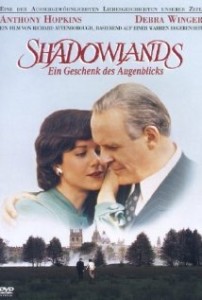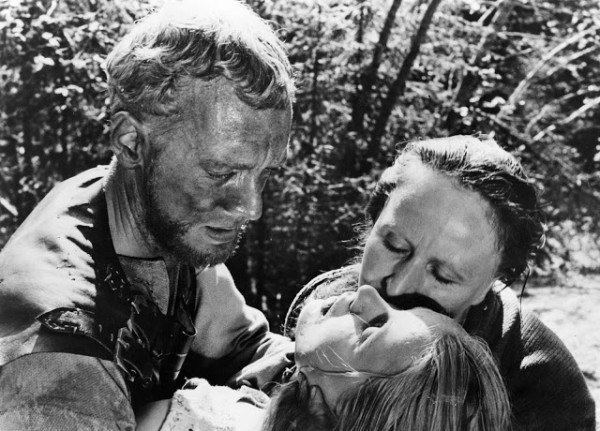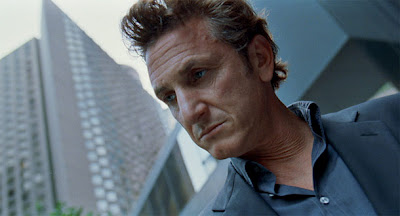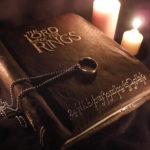A Cinematic Tour of the Problem of Evil
by Matthew Becklo
Filed under The Problem of Evil
Is God willing to prevent evil, but not able? Then he is not omnipotent.
Is he able, but not willing? Then he is malevolent.
Is he both able and willing? Then where does evil come from?
Is he neither able nor willing? Then why call him God?
— Epicurus
Gruesome and tragic headlines from the past few months have thousands of people of faith scratching their heads, asking: why does God allow this evil to happen? Isn't he supposed to be all-loving and all-powerful? The question is even more pressing for people who are directly involved and suffering enormously.
This problem - known to philosophers as "the problem of evil" - is as old as the book of Job. Many theologians and artists, from Augustine and Aquinas to Dostoevsky and Thornton Wilder, have grappled with this fundamental question. In fact, we can survey the theological problem, its emotional gravity, and its strongest resolutions by looking at a handful of excellent films.
Oxford mathematician and philosopher John Lennox has often emphasized two very important things about this classical problem from the outset. I'll follow his lead here.
First, we have to first acknowledge that there is both an intellectual and emotional component to the problem. Secondly, both components amount to one of the best (if not the best) arguments against God that there is - and believers need to be humble enough to admit it.
With those preliminaries in mind, let's take a look at six films that wrestle with this problem: The Virgin Spring, Hannah and Her Sisters, Crimes and Misdemeanors, The Seventh Seal, Signs, The Tree of Life, and Shadowlands:
These two Woody Allen films sum up the intellectual side of the problem of evil (also neatly summed up in the Epicurus quote at the top of the article). In Hannah and Her Sisters, his character - who is in the middle of a profound existential crisis - asks: "If there's a God, why is there so much evil in the world? Just on a simplistic level, why were there Nazis?" In Crimes and Misdemeanors, a jaded humanist at a family Seder says that Hitler "got away with" the slaughter of 6 million Jews. Where was God in the Holocaust? Why didn't he stop it? Or at least punish the wicked after it happened?
 Countless theologians and Christian thinkers have wrestled with the problem of evil on this intellectual level, as Woody Allen often does. For example, writer Fyodor Dostoevsky made the suffering of innocent children the sturdy basis of his character Ivan's atheism in The Brothers Karamazov. Theologian David Bentley Hart calls this argument against God "far and away the best argument" (nota bene all you atheists), and the one that occasions his own periodic loss of faith.
Countless theologians and Christian thinkers have wrestled with the problem of evil on this intellectual level, as Woody Allen often does. For example, writer Fyodor Dostoevsky made the suffering of innocent children the sturdy basis of his character Ivan's atheism in The Brothers Karamazov. Theologian David Bentley Hart calls this argument against God "far and away the best argument" (nota bene all you atheists), and the one that occasions his own periodic loss of faith.
In Allen's films, the solution is often just comic diffusion: "How the hell do I know why there were Nazis? I don't know how the can opener works." But there have been noble attempts at solving the problem of evil intellectually, which include emphasizing the notions of free will, the fall of man, and the permission of evil to bring about greater goods. In the movie Shadowlands, Christian intellectual, apologist, and former atheist C.S. Lewis - played by Anthony Hopkins - says that confidently that God allows suffering because "we are like blocks of stone out of which the sculptor carves the forms of men. Blows of his chisel, which hurt us so much, are what make us perfect."
But to the soul of someone whose child was just kidnapped, or who has just been diagnosed with a rare, aggressive form of cancer, such legalistic answers mean little - especially when the suffering looks so senseless, and so preventable. These answers may address why God permits evil in the abstract; but why is he permitting it right now, in this way, to me, to my child? At this point, no amount of intellectual maneuvering will do - the problem is, as philosopher Peter Kreeft calls it, "not just an intellectual experiment," but a "rebellion of tears." This is the emotional side of the problem of evil.
 We see this side very clearly in that same movie, Shadowlands. CS Lewis, who was able to speak eloquently about the problem in the abstract, is personally devastated when he has to confront suffering in his own life: the loss of his first and great love, Joy Gresham, to cancer.
We see this side very clearly in that same movie, Shadowlands. CS Lewis, who was able to speak eloquently about the problem in the abstract, is personally devastated when he has to confront suffering in his own life: the loss of his first and great love, Joy Gresham, to cancer.
"Don't tell me it's all for the best," he says to his colleagues, who are fellow intellectuals and theologians. He anticipates their best answers and doesn't want them. A kindly priest tries anyway: "Only God knows why these things have to happen." But Lewis is totally unsatisfied with this response. "It won't do. It's a bloody awful mess and that's all there is to it."
The power and pain of the emotional side of this problem is also masterfully portrayed in two Ingmar Bergman movies: The Seventh Seal and The Virgin Spring.
The Seventh Seal, which has the famous scene of a medieval knight (Max von Sydow) playing a game of chess with Death, meditates over and over on the silence of God in the midst of great despair, and even questions his existence - a motif that is obviously very relevant for those going through great suffering.
But The Virgin Spring, which is about a young girl who is unexpectedly raped and murdered, gets right to the heart of the matter. After the horrible act of violence, the girl's father collapses and prays: "The death of an innocent child...you allowed it to happen. I don't understand you." Remembering when he watched this movie for the first time, director Ang Lee said: "I'd never in my 18 years of life seen anything so quiet, so serene, and yet so violent, and so fundamentally questioning God."
To my mind, though, the two films that deal most brilliantly with the problem of evil are Signs and The Tree of Life, for this reason: they provide the hope of a resolution, one which engages both the heart and mind.
Signs, on the face of it, doesn't seem like it's about this philosophical problem at all; the M. Night Shyamalan sci-fi thriller follows a family in a small rural town dealing with crop circles and an imminent alien invasion.
But underlying the film is a profound meditation on the problem of evil. The protagonist Graham Hess (Mel Gibson) is a former Episcopalian priest who renounces God after his wife is killed in a random, horrible traffic accident. For Hess - as for C.S. Lewis and countless others who have wrestled with the problem - theological explanations seem to fall short. Something is missing; it's God's voice, offering some reassurance, where instead there's only silence and what seems like indifference.
The key scene in the film comes in a discussion between Hess and his younger brother Merrill (Joaquin Phoenix) about the arrival of the aliens. Hess explains that there are two groups of people looking at the alien lights in the sky in two different ways: one group feels that they are on their own, and sees everything, including these lights, as evidence of blind luck, coincidence, even chaos; the other feels that "there'll be someone there to help them," and sees signs and miracles where the first group sees coincidences.
When Merrill asks his brother which group he falls into, Hess describes his dying wife's last moments: her innocent body pressed against a tree by a totaled car, her eyes glazed, and her lips saying" See. Swing away." What sign could that be? It was only the random firing of neurons, electrifying the memory of some baseball game right before his wife's unexpected death. From that moment on, he decides: "There is no one watching out for us. We are all on our own."
This is a glimpse into the darkness and despair wrought by the experience of suffering. It's not that God doesn't love us - it's that he was never there at all.
The Tree of Life presents a similar pain and loss. We watch Jack (Sean Penn) wander in a state of spiritual desolation, contemplating the loss of his younger brother at the age of nineteen. In a flashback, their mourning mother is comforted by a well-meaning neighbor, who says: "Time heals...the Lord gives and takes away." But these platitudes are like band aids on a festering wound; they do nothing, heal nothing. "Why?" the mother whispers in a voice over, calling out to God. "Where were you?"
In both of these films, we see that the mind wants explanations about God's ways. But the suffering heart needs to hear his voice, to know that he cares, or that he's even there at all. And both films, in their way, reveal that voice.
In Signs, a bundle of seemingly unconnected and random threads - including Hess' wife's last words - suddenly weave into a big and beautiful tapestry that makes sense of everything. This restores Hess' faith that someone has been watching out for him; that his profound loss and his wife's painful death are ugly threads that will, in some way, end up a necessary part of a perfect whole. As we saw in Shadowlands, this isn't a message Hess could hear from a friend or neighbor - instead, he had to "hear" it from God, and see it in his own life.
Sean Penn's character Jack in The Tree of Life also "hears" God's voice toward the end of the film, through a transcendental vision that points to the "why" of suffering:
This glimpse of the ultimate reality of eternity stirs hope in Jack's heart that "all shall be well, and all manner of thing shall be well" - not in spite of suffering, but because of suffering. Suffering is the groundwork laid in order to build shared, everlasting love.
Neither Signs nor The Tree of Life denies the problem of evil, or tries to explain it away. There are grim portrayals in both movies of random illness, evil acts, and tragic death - lived realities that hurt like hell.
But when Hess put his clerical collar back on, and when "Agnus Dei" ("Lamb of God") is sung during Jack's vision of eternity, a very particular picture of God is brought to mind: not God as puppet master pulling the strings, or a judicial authority punishing us for our own good, or (as Christopher Hitchens called him) a celestial Kim Jong-il. Instead, we glimpse a "suffering God"; one who, as atheist Slavoj Zizek brilliantly put it, "is agonized, assumes the burden of suffering, in solidarity with the human misery."
The image of God himself beaten, stripped naked, humiliated with thorns, and nailed to a cross to die contains one of the most powerful "words" - the Logos - that suffering people looking for God's voice can see and understand. Why is it such a powerful response to the problem of evil? Because the cross literally connects suffering and weakness and pain with divine life, with God's love. (This doesn't mean that pain ceases to be pain - or that suffering should be idealized for its own sake. As trappist Thomas Merton put it, Christianity faces suffering and death "not because they are good, not because they have meaning, but because the resurrection of Jesus has robbed them of their meaning.")
Even for those with this essential faith, intellectual problems still linger. For example: Why do certain people suffer so much more than others? How could eternity ever "undo" or "excuse" the horrible damage that has been done, especially to innocent children? And what about the suffering of animals - does that go unredeemed?
I think Hess and Jack would continue to wrestle with these questions beyond the final frames, just as we all do in our lives. But we see a fundamental hope taking root in both characters, grounded in a distinct understanding of who God is. This understanding, if we share it, matters; it means that when confronted with atrocious human evils like the Holocaust and asked "where was God," we're compelled to say: right there in the gas chambers, lifting up the suffering.
What other films exhibit the problem of evil?
Related Posts
Note: Our goal is to cultivate serious and respectful dialogue. While it's OK to disagree—even encouraged!—any snarky, offensive, or off-topic comments will be deleted. Before commenting please read the Commenting Rules and Tips. If you're having trouble commenting, read the Commenting Instructions.















